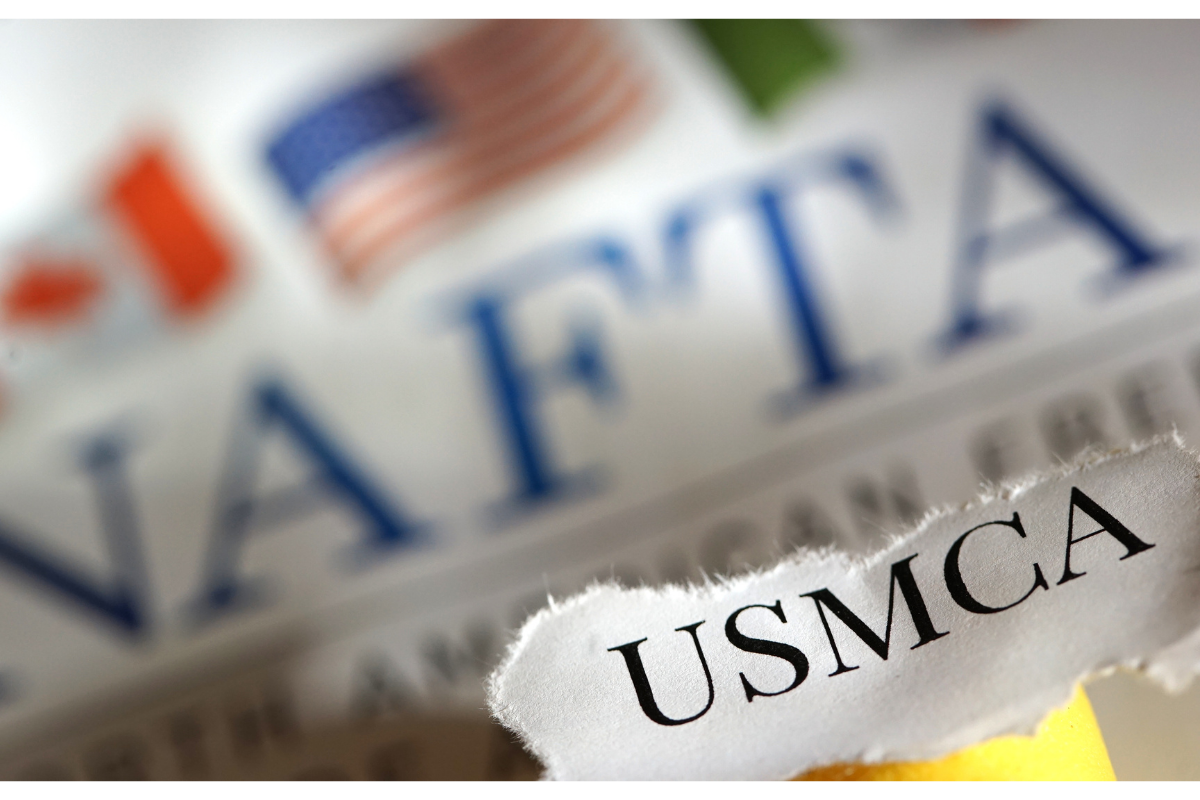
Labor Law Considerations Under the USMCA.
The United States, Mexico, and Canada reached an agreement to modernize the 25-year-old North American Free Trade Agreement (NAFTA) into a 21st century, high-standard agreement. On July 1, 2020, the United States-Mexico-Canada Agreement (USMCA) officially went in to force with the goal of supporting mutually beneficial trade leading to freer markets, fairer trade, and robust economic growth in North America.
USMCA is the first trade agreement ever to include a full chapter dedicated to small business interests. In an exclusive to MBE magazine, the partners at Cacheaux, Cavazos & Newton, LLP have written a series of articles to help small businesses involved in international trade understand how USMCA is designed to benefit U.S. small businesses and to ensure more balanced trade. The first article in the series, “Reviewing the United States-Mexico-Canada Agreement,” was included in our fall 2020 issue. Part 2 is below.
Introduction
The USMCA includes strong and sweeping labor law provisions. Given the international importance of labor laws and working conditions, Chapter 23 of the USMCA is dedicated exclusively to addressing labor matters. Labor matters were a key topic in USMCA negotiations, given that labor issues were a major concern of the United States Congress throughout the negotiation process. In contrast to the USMCA’s prioritization of labor in a dedicated chapter, the NAFTA labor provisions were merely incorporated in a side agreement containing 11 guiding principles on worker rights. The NAFTA required Parties only to cooperate on labor matters and submit persistent patterns of a Party’s failure to enforce labor laws to full dispute resolution procedures. Chapter 23 of the USMCA strengthens these labor provisions, allows for legal recourse on labor matters through the same dispute settlement procedures that apply to other matters, and requires each Party not only to enforce its labor laws but also to adopt and maintain laws on core worker rights as stated in the International Labor Organization (ILO) 1998 Declaration of Fundamental Principles and Rights at Work (ILO Declaration on Rights at Work), all while promoting fair trade.
Executive Summary
Importantly, in Chapter 23 of the USMCA, the Parties recognize their ILO obligations and agree to enforce their respective labor laws and maintain and adopt laws as necessary to protect the labor rights set forth in the ILO Declaration on Rights at Work. Such rights include the freedom of association and the effective recognition of the right to collective bargaining, the elimination of all forms of forced or compulsory labor, the effective abolition of child labor, and, for purposes of the USMCA, a prohibition on the worst forms of child labor, and the elimination of discrimination with respect to employment and occupation. Accordingly, the Parties may not eliminate or diminish their domestic labor rights regulations in a manner that impacts trade or investment among the Parties. As to collective bargaining, Mexico must establish and maintain regulations that recognize and protect workers’ rights to collective bargaining. Additionally, the USMCA prohibits anyone in the three countries from importing goods that have been produced in whole or in part by forced or compulsory labor, including forced or compulsory child labor. The Parties are also required to address violence or threats of violence against workers that impact trade or investment among the Parties. Chapter 23 also requires each Party to establish and maintain fair and impartial labor tribunals to hear labor cases in an open and transparent manner, with decisions being made based on the evidence presented.
Additionally, the USMCA includes Annex 31-A Facility-Specific Rapid Response Labor Mechanism, applicable to the United States and Mexico, and Annex 31-B Canada-Mexico Facility-Specific Rapid Response Labor Mechanism, applicable to Canada and Mexico, which contain procedures for the Rapid Response Labor Mechanism for alleged violations of workers’ rights to free association and collective bargaining. Under this new procedure, a person may file a complaint with the United States or Canadian governments alleging that a Covered Facility in Mexico is violating Mexico’s labor laws and not fulfilling the obligations under the USMCA regarding workers’ rights to collective bargaining. The United States and Canada each intend to establish their own respective domestic processes, under which their governments will strive to complete initial reviews of complaints about a Covered Facility in Mexico within 30 days of receipt by each government.
In addition to the labor provisions of Chapter 23, the USMCA also includes provisions to increase wages and make the U.S. auto industry more competitive. Chapter 4 on Rules of Origin contains a new Labor Value Content rule requiring that at least 30%-45% of auto content be made by workers earning at least $16.00 USD per hour for a vehicle to be considered as originating and receive USMCA tariff relief.
Conclusion
The USMCA’s labor provisions were heavily negotiated and critical for the ultimate approval of the Agreement by the United States. As a result of negotiations and final text of the free trade agreement, each Party is required to implement legislation to comply with Chapter 23 of the USMCA. In May of 2019, Mexico enacted historical labor reforms, amending its Federal Labor Law to comply with the requirements of the USMCA and the ILO Declaration on Rights at Work. Mexican employers must now comply with such amendments and implement a protocol to prevent workplace discrimination and adopt policies to prevent psychosocial risk, in accordance with the Official Regulation “NOM-035-STPS-2018,” which became effective on October 23, 2019. In furtherance of its commitments in the USMCA, Mexico will also need to implement a new labor courts and judicial system, as well as further protections for workers’ rights to collective bargaining.
Cacheaux, Cavazos & Newton (“CCN”), a certified minority-owned business enterprise, is an international law firm based in San Antonio with additional offices in Austin and McAllen, Texas, and throughout Mexico in Mexico City, Monterrey, Guadalajara, Tijuana, Queretaro, Ciudad Juarez, Reynosa and Matamoros. CCN’s attorneys are bicultural, bilingual and are licensed to practice in the U.S. and Mexico. The firm helps international clients navigate a broad range of legal issues in the increasingly integrated North American market. CCN’s clients include large global companies, as well as small and medium-size businesses, which the firm advises in a wide array of practice areas in both the United States and Mexico.













